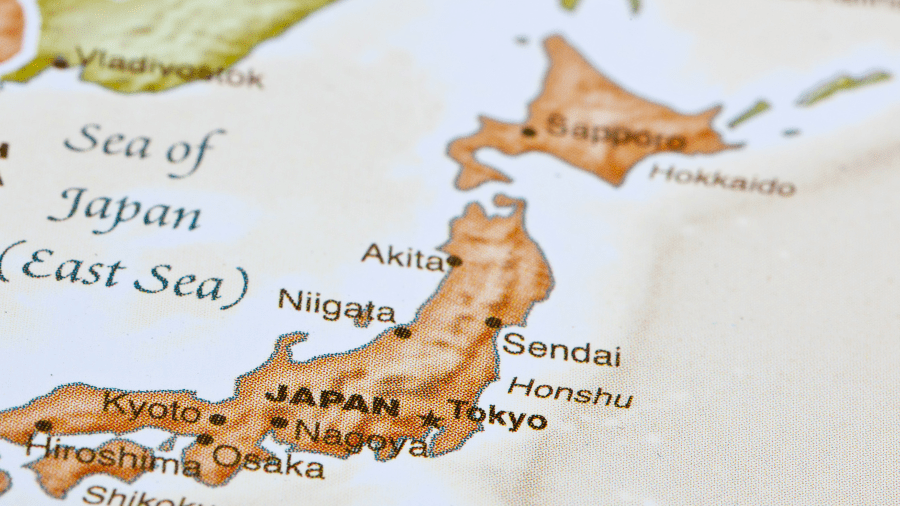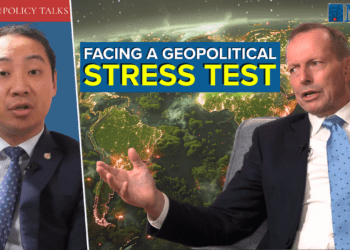By Simran Walia, June 21, 2023
Japan leveraging its position through its G7 Presidency
This spring’s G7 summit in Hiroshima, Japan held special significance as it was hosted at the site of the world’s first-ever and most atrocious nuclear attack. While the agenda revolved around the Ukraine invasion, nuclear non-proliferation, economic cooperation and the climate crisis, Prime Minister Fumio Kishida saw the gathering as a stage to show the changing face of a Japan that is enthusiastic to address global responsibilities to advance international peace and security.
It was a significant summit for Canada (an important G7 member) as it works to advance its domestic as well as international priorities by focusing widely on peace and security, climate change and boulstering a sustainable global economy. Prime Minister Justin Trudeau spoke at the G7 about cooperating on global and economic security in order to safeguard against geopolitical instability.
G7 Summit Meeting
The summit focused on the rise of China, the prospects for Taiwan, economic coercion and nuclear arms. Several world leaders concentrated their remarks on ‘de-risking’ without ‘de-coupling’ from China, giving less exposure to the world’s second-largest economy. They emphasized reducing excessive economic dependence on China while maintaining stable relations with the country.
By hosting the G7 in Hiroshima, Japan projected its commitment to denuclearisation, notwithstanding growing security pressures pertaining to Russia, China and North Korea. Part of the summit’s focus was the need to increase engagement with non-G7 members, including the “Global South”. A recurring theme was support for Ukraine, including allied promises to supply F-16 fighter jets to Kyiv and the message this sends to Russia.
The Significance of Japan’s G7 Presidency
Prime Minister Kishida has been steadily working to transform Japan’s security strategy to respond to the region’s tense strategic and security environment. China’s military rise and the Ukraine invasion have propelled Japan into rethinking its security capabilities, and last December Kishida unveiled a new National Security Strategy (NSS) that commits Japan to increasing its defence budget to 2 percent of its GDP by 2027. The security strategy also emphasised giving Japan’s military counterstrike capabilities to deter an enemy attack, though it does not allow pre-emptive attacks.
From the beginning of the Russia-Ukraine conflict, Japan has supported the G7 placing harsh economic sanctions on Russia, and has itself imposed several sanctions. China was also a factor in the G7’s commitment to ensure a “free and open Indo-Pacific” through the cooperation of several key countries in the region. Kishida strongly advocated that Russia’s invasion of Ukraine is of grave concern for the entire world as Japan aims at upholding a rules-based order. This messaging was very clear at the summit as well.
Kishida also prioritized denouncing the use of nuclear weapons, and seeks to further promote nuclear proliferation and foresee a world without weapons of mass destruction. This is also one of the reasons for symbolically choosing Hiroshima as the location for this year’s summit. Kishida explained that “Hiroshima, once devastated by the atomic bombing, has rebuilt itself to become a city that seeks peace”, even as the United States relies on such weapons to maintain peace.
The 2023 summit also focused on protecting nations from economic coercion, and on efforts to create new supply chains that would eventually facilitate maintaining relationships with developing countries. Kishida recently visited a number of African nations for the purpose of forging better relationships with developing countries.
Meanwhile on the sidelines of the G7 summit (which China accused of hampering international peace and undermining regional stability) the Quad summit was held. All four of its members — Australia, India, Japan and the U.S. — discussed China and opposed any unilateral actions that seek to change the status quo by force.
The Indo-Pacific region is a platform of global trade, development and innovation, and its security is important for the entire world. Japan has been working to align itself with G7 nations on the Ukraine invasion to ensure that, at times of any disturbance in the Indo-Pacific region, western countries too will cooperate against China.
The Ukraine situation has raised concerns in Japan regarding the possibility of a conflict in the Taiwan Strait, and Japan is attempting to strengthen its internal military capabilities and cooperate with like-minded partners. India and Japan are crucial Indo-Pacific partners. Both countries support preserving a rules-based order, and India’s involvement in the region has been vital for Japan to come up with its free and open Indo-Pacific vision. The G7 summit was also an attempt to reinforce partnerships in the Indo-Pacific region which faces ongoing security risks tied to geopolitical rivalries.
In light of threats from China, Russia and North Korea, Japan has announced defence policy changes, including increased defence spending and acquiring new weapons, and also seeks an active role in accelerating its science and technology sector, including the country’s chip industry.
Alongside the G7, the leaders of Canada and Japan held bilateral talks wherein they emphasized cooperating to address the threat of China and North Korea’s nuclear ambitions. Both leaders also reaffirmed their continued support for Ukraine along with collaborating to increase engagement with the Global South.
Prior to the G7, Trudeau had visited South Korea, where both nations agreed to cooperate on safeguarding the supply chain of critical minerals. Canada has been seeking to expand its alliances through deeper relationships with Japan and South Korea, and amidst ongoing tensions in the international situation, Canada’s strategic importance regarding its resource development — notably LNG and critical minerals — has become significant.
Canada’s Indo-Pacific strategy, too, is built around bolstering focus military and economic ties in the region to counter Beijing’s influence. Both Canada and Japan continue collaborating to secure a free, open and stable Indo-Pacific region. In this spring’s G7, Canada echoed other like-minded democracies in seeking to build new supply chains that would reduce many countries’ reliance on raw materials from nations like China and Russia.
Kishida is also working to create stronger networks, and the participation of countries like India, South Korea, Canada, Indonesia, and Australia among others illustrates how Japan wants to build these partnerships.
A key takeaway from the spring G7 is that deeper cooperation between India and Japan is vital to offsetting the new strain of global challenges. The summit has portrayed Japan as a critical, dynamic player that is willing to work towards and address the strategic issues of the Indo-Pacific and wider global community. The summit positively showcased how the G7 leaders came to a unified position on Russia and China and its outreach to Global South has also been commendable. What was noteworthy is that Japan used its G7 Presidency to have a prominent role in supporting Ukraine and moving away from Japan’s pacifist constraints.
Simran Walia is a Research Associate at the Centre for Air Power Studies, New Delhi and is pursuing PhD In Japanese Studies from Jawaharlal Nehru University, Delhi (JNU). She has also completed M.Phil in Japanese Studies from JNU. She has also worked at Observer Research Foundation, Delhi. Her research interests include Japanese politics and foreign policy, and Indo-Pacific and East Asian foreign policy. She has published articles and papers in magazines and journals like, The Diplomat, Indian Defence Review, Global Policy Journal, Asia Times, The National Interest, 9DashLine among others.






